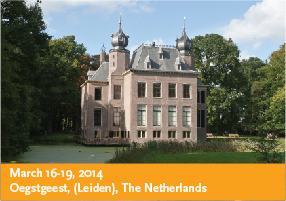
|
Programme DescriptionModern Methods in Peptide Synthesis The first session will be headed by Professor Knud J. Jensen from University of Copenhagen and focus on modern methods in peptide synthesis as well as design and synthesis of modified peptides. This session provides an introduction to and overview of modern methods in peptide synthesis. Furthermore, the design and chemical synthesis of modified peptides will be presented. Solid-phase peptide synthesis (SPPS) using fluorenylmethyloxycarbonyl (Fmoc) protected amino acids has become the preferred method for the chemical assembly of peptides. Here we will present modern methods for solid-phase peptide synthesis. This will include resins, linkers (handles), protecting groups, coupling reagents, reagents for release and global deprotection of peptides, as well as use of precise microwave heating. The second part of the session will introduce concepts for the design of modified peptides, including backbone and side-chain modifications. This will be exemplified with a case story on peptidic protease inhibitor. The session will include examples for the design and manufacturing of peptide drugs. Designer Proteins The second session will be headed by Professor Kristian Strømgaard from University of Copenhagen and will cover designer proteins and peptide-based inhibitors of protein-protein interactions. There is an increasing need to modify proteins beyond the limitations of the genetic code, and a number of emerging tools and technologies now allow a range of protein modifications. Here technologies for semisynthesis of proteins and unnatural mutagenesis are discussed including both commercial and academic applications. Specific examples comprise introduction of chemical handles for site-specific modifications, protein backbone modification as well as selective introduction of post-translational modifications. Targeting protein-protein interactions can be challenging, and for some proteins peptide-based inhibitors have proven superior to small molecules. In the lecture an example with PDZ domain mediated protein-protein interactions is given, showing how peptide modifications and design of dimeric peptide inhibitors have led promising preclinical candidates. Issues related to route of administration and improving PK properties are also discussed. Therapeutics Antibodies The third session will be headed by Dr. Tatjana Albrektsen from Novo Nordisk, Denmark. Antibodies constitute the most rapidly growing class of human therapeutics and the capability to generate high affinity monoclonal antibodies (mAbs), recognising a wide repertoire of mechanistically relevant epitopes, in combination with optimized screening technologies enabling selection of front runner candidates set the competitive edge in therapeutic mAb development. This session will give an overview of the process of making a therapeutic antibody, with particular focus on the initial part. Moreover, application of therapeutic antibodies and novel antibody-derived formats will be presented. The Insulin Case Story The fourth session will be headed by Dr. Thomas Høeg-Jensen from Novo Nordisk, Denmark. The insulin case story will illustrate several biopharmaceutical disciplines from endocrinology over formulation science to recombinant expression and chemical protein modification. The discovery of insulin around 1920 made medical history and resulted in a controversial Nobel prize. Insulin has since been formulated and engineered both recombinantly and chemically in pursuit of both faster and slower profiles in vivo in order to match either meal or basal insulin requirements of diabetes patients. The story of insulin will also illustrate the generally available administration forms for protein drugs, subcutaneous injection, inhalation or even oral routes. The second part of the insulin session will include a workshop with simple hands-on modelling of insulin 3D structures. Discovery and Development of Engineered Glucagon Like Peptide-1 Analogues The last session will be headed Dr. Jesper Lau from Novo Nordisk, Denmark. This last session will focus on the discovery and development of engineered glucagon like peptide-1 analogues for treatment of diabetes. As discussed in the precious sessions the developments within biotechnology has given access to various technologies that are applicable to optimize the properties of endogenous proteins and peptides to stable and efficacious drugs with improved pharmaceutical profiles. The in vivo parameters that often are being optimized includes renal clearance (by adding mass and charge to the protein), liver elimination (by removal or hiding of specific receptor signatures), and plasma elimination (by elimination of proteolytic sites with amino acid substitutions). In addition the biophysical properties addressing stability of drug product is often being optimized to obtain a successful drug candidate. These matters will be exemplified using examples from various biotech and pharmaceutical companies. The session will also include group work to discuss the pros and cons of specific cases to be presented in plenum. |




